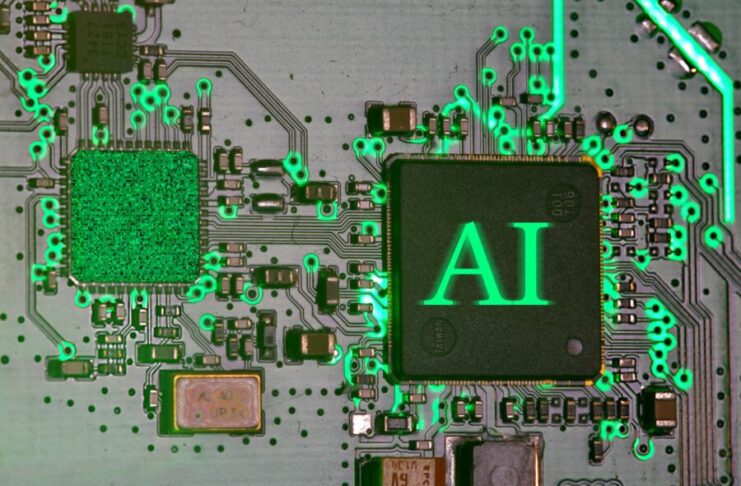Burnout is working too hard, yes, but it’s more than that. It’s working in unsustainable ways. This is especially potent for those in leadership positions. And in the hybrid, high-stakes work environments we live in today, leaders face unique pressure to perform, decide, manage, and support. All while very often lacking structured support themselves.
Initiatives like mental health days and various wellness apps have become widespread, but they’re often too little, too late. Fixing burnout after it happens is an ineffective way of navigating life. We need to shift the focus to preventing it from taking hold in the first place.
Enter Artificial Intelligence (AI). It presents a new and underused opportunity: not as a replacement for human wellbeing practices, but as a smart, scalable companion to them.
Why Leaders Burn Out Differently
Research by Christina Maslach and others identifies six root causes of burnout: lack of control, value misalignment, insufficient reward, work overload, unfairness, and breakdown of workplace community. For leaders, these often manifest as:
- Emotional labour from managing teams
- Decision fatigue from constant context switching
- Isolation due to hierarchical separation
- Pressure to always be available and resilient
Traditional interventions like coaching or wellness workshops are helpful, but reactive. AI offers a proactive layer.
AI as a Burnout Prevention Tool
Used intentionally, AI can provide early signals, smart nudges, and personalised insights that help leaders maintain clarity and capacity.
- Pattern Recognition
AI can analyse communication patterns, meeting loads, or decision-making timelines to detect subtle shifts in energy, tone, or cognitive strain. - Wellbeing Insight
Rather than issuing generic wellness tips, AI can reflect back personalised feedback: “You’ve had six days of back-to-back meetings with no scheduled recovery time. Would you like to shift next week’s load?” - Tailored Micro-Interventions
Instead of one-size-fits-all meditation prompts, AI can offer tools aligned with personality and stress type—whether that’s a reframing exercise, a walk reminder, or a breathwork protocol. - Feedback Loop Without Judgment
One of AI’s strengths is neutrality. Leaders who may hesitate to admit fatigue or struggle in a human setting can engage in private, self-guided reflection with no stigma.
From Generic to Precision: The Evolution of AI Support
Most AI wellbeing tools today operate at a generic level: chatbots offering affirmations or stress tips. But we’re now seeing a move toward precision tools that:
- Identify leadership communication breakdowns
- Reveal misalignments in task values vs personal values
- Highlight cognitive overload days before it escalates to burnout
In some cases, these tools can be trained on a leader’s unique style, values, and personality profile to offer tailored support – a kind of AI-enabled self-awareness coach. A coach who is available 24 hours a day, 7 days a week.
This shift follows a broader model of AI use in personal development:
- Evolution 1: Generic Prompting – Chatbots, AI therapy apps, and general assistants that suggest common tools like gratitude journaling or affirmations. They offer surface-level insight but lack a broader context.
- Evolution 2: Specialised Tools – Targeted AI applications designed for specific challenges such as imposter syndrome, emotional regulation, or decision stress. These tools spot patterns humans might miss, such as communication friction, micro-stress build-up, or value clashes in project teams.
- Evolution 3: Personalised Mentorship – The most advanced use case, where AI is trained on an individual’s cognitive and emotional blueprint. It understands how they process, react, and recharge. More importantly, it identifies subtle patterns across data points – such as the link between certain leadership behaviours and team disengagement – and suggests interventions no human coach might detect.
The Organisational Advantage
Burnout isn’t a simple personal failing to be ignored. Unchecked, it will impact decision quality, team morale and long-term retention. For organisations, supporting leaders with smart AI-enhanced wellbeing tools means:
- Less absenteeism and presenteeism
- Higher engagement and clarity in leadership
- Early detection of risk before performance dips
Organisations that adopt AI not just for productivity but for wellbeing signal a deep commitment to sustainable leadership.
A Smarter Way Forward
AI is not a silver bullet. But when used intentionally, it offers a new dimension of support for leaders navigating complex environments. It doesn’t erase our human need for other humans, but it can provide invaluable support by reducing cognitive load and giving valuable insights into our own work patterns and hidden ways we can optimise.
In the future of work, the leaders who thrive won’t be those with the highest tolerance for stress. They’ll be the ones most intelligently supported.

Dr Lisa Turner
Dr Lisa Turner is the founder of CETfreedom, a spiritual and consciousness awakening organisation, specialising in training professional coaches and practitioners in her signature process Conscious Emotional Transformation, (CET) and is author of CET Yourself Free.


